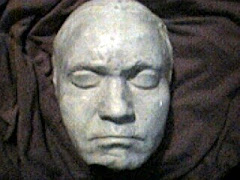Musical scores came to be written as if dogma, down to the last pedantic detail; performers, even brilliant ones, became mere instruments to the composer's vision.Read all at link above.
That may be a bleak view of the concert hall. But Kristjan Jarvi, the energetic Estonian-born conductor, is disdainful of the pseudo-intellectualism of some contemporary music and the "academic blackmail" to which it subjects performers.
The pianist and conductor is doing his bit to address the perceived imbalance between composer and musician. It's not so much a contest of wills as a spectator sport in which music as well as audiences should benefit.
"It is really important to make the performers feel that they have freedom, that they can express music rather than just play the notes," Jarvi says on the phone from Hanover, Germany.
"The only reason I believe that classical music concerts have become stale is that that kind of freedom and ingenuity is lacking."
In my opinion artists have a responsibility to bring their creativity forth in performing great works. I think, as a composer, that if someone where to interpret a piece of mine, adding their sense of art(lessness) it would add greatly to the work. It's not that I would have someone make a lot of changes, unless they say what they are doing is based on what the composer's ideas are or are understood to be. Who can say what Brahms sounded like each time he played or conducted a certain piece, or Liszt for that matter, or any of the great composers.
Making music means or can mean what is felt in the moment--the inspiration of improvisation, not that you change then notes-- but what you do with them.
Music comes from and is creation. It is now and always. It is so much bigger than the written page, the performer and the composer.






